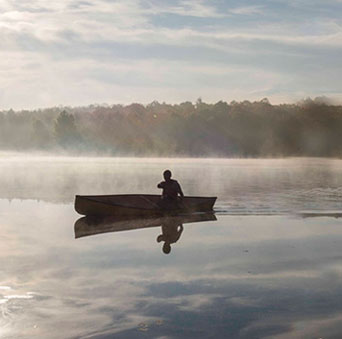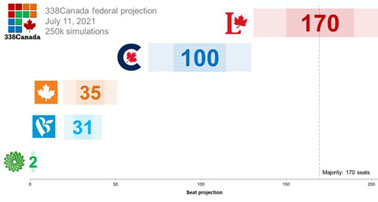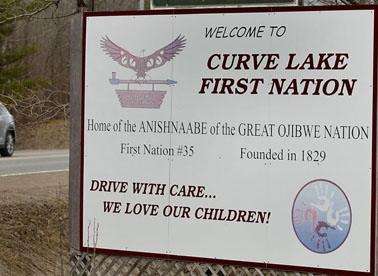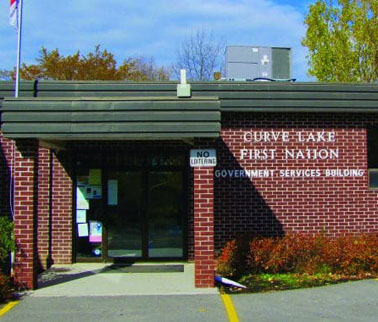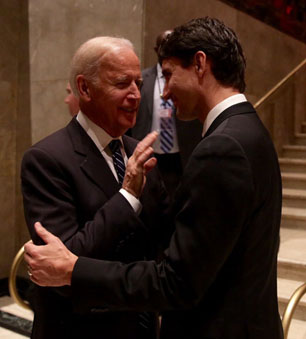Is a federal election in Canada coming soon (and will “reconciliation with Indigenous people” be a key theme)?
Jul 13th, 2021 | By Citizen X | Category: In BriefSPECIAL FROM THE DEMOCRATIC DESKTOP OF CITIZEN X, BUCKHORN, ON. K0L 0C1.
On a grey day in the Kawarthas two or possibly even three big political questions float on the clouds.
(While even with the sun not shining the government tourism ad is strangely truthful : “You never forget the feeling of summer in Ontario.”)
The big questions are : Will there be a Canadian federal election soon – this fall at least?
If so, will Indigenous issues actually play a big role in the election, as some have hopefully suggested?
And finally (maybe), how do political developments just next door in the USA affect election prospects in the true north, strong and free?
Opinion polls
If you live in the Big Smoke and consulted the Toronto Star and the Globe and Mail over the weekend you might guess that there probably will be a federal election soon enough. The venerable Star political columnist Bob Hepburn has advised : “Will Justin Trudeau miss the ideal window to call an election? He couldn’t ask for a better time than now.”
Meanwhile, eminent pollster Nik Nanos was being somewhat more cautious in the more conservative, business-minded Globe and Mail : “Is now the right time for an election? … Although the polls suggest a positive environment for the federal Liberals to call an election, campaigns remain double-edged swords.”
Both Éric Grenier’s CBC Poll Tracker and Philippe J. Fournier (@338Canada – and Maclean’s) have just updated their poll aggregation and seat projection models as well. Grenier neatly summarizes the results in both cases : “Liberals on threshold of majority government.”
As background, note that there are currently 338 seats in Canada’s elected federal Parliament, making the barest of majorities 170 seats. For an election held now Fournier’s projection from the opinion polls gives Liberals 170 seats, Conservatives 100, NDP 35, BQ 31, Greens 2. Grenier gives Liberals 171, Conservatives 101, NDP 33, BQ 31, Greens 2.
No real need?
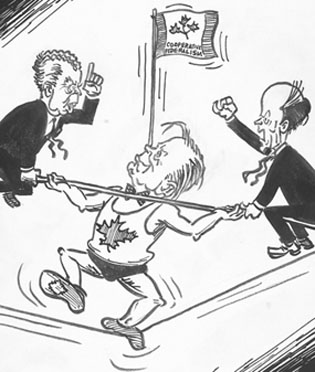
It is arguable enough that none of the four opposition parties in the current Trudeau-Liberal minority parliament have any real interest in an election this fall or earlier – to say nothing of a contest in which the Trudeau Liberals do win a fresh majority.
On both the Fournier and Grenier calculations the Conservatives and (to a much lesser extent) the BQ and Greens would all lose seats in an election held now. Like the Liberals the New Democrats would gain seats (11 in Fournier and 9 in Grenier). But if the Liberals do win a majority government, Jagmeet Singh’s NDP almost certainly has more influence on Trudeau Liberal policy now than it would have after a fresh election.
Considerations of this sort help fuel the argument that there is no real need for a Canadian federal election in any near future. And the next scheduled contest under Ottawa’s inevitably ambiguous fixed-date legislation is as long away as October 16, 2023 – more than two years hence.
Voters, it has been suggested by some observers, might punish a government that called an election just because current opinion polls suggest PM Justin Trudeau is at the moment “on threshold of majority government.”
History of minority governments in Canada
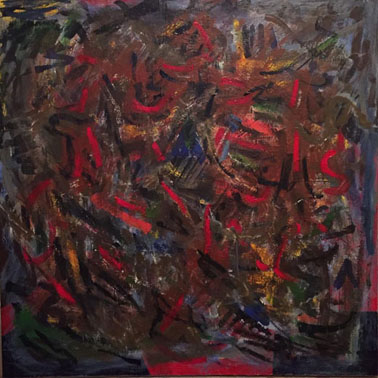
On the other hand, the current Trudeau Liberals do have only a minority government. The average lifetime of minority governments in Canada is said to be about 18 months (16.7 to 18.9 depending on exact definitions).
The Trudeau Liberal minority government elected on October 21, 2019 has already been in office more than 19 months. By late this October 2021 (if the government lasts that long), it will have been around for two years. And only five of the (say) 14 minority governments since 1867 have survived for more than two years.
Depending on just how you count such things, there have been from 12 to 14 Canadian minority governments since 1867. The Wikipedia article “Federal minority governments in Canada” reports 14. This includes Alexander Mackenzie’s 56-day Liberal government of 1873-1874 in the immediate wake of the Pacific Scandal – “generally not noted because Parliament was never in session” during this period.
The online Canadian Encyclopedia reports “13 minority governments in Canada since the first was elected in 1921.” The 2009 edition of the Canadian HOUSE OF COMMONS PROCEDURE AND PRACTICE reported 11 general elections with “no single party obtaining a majority of seats” – a list which grows to 12 with the 2019 election.
The difference between this House of Commons list and both the Canadian Encyclopedia and Wikipedia lists is that the latter also include Arthur Meighen’s 3-day Conservative government of 1926, which like Alexander Mackenzie’s 56-day government of 1873-1874 was formed without a fresh election.)
Indigenous issues a dominant theme?
A July 10, 2021 editorial in the Timmins Daily Press from Northern Ontario has urged : “Four Indigenous women speak – and Canadians are listening … In the coming election, reconciliation with Indigenous people may actually be a dominant theme. It’s about time.”
(The four women are new Inuk Governor General of Canada Mary Simon, new Assembly of First Nations Grand Chief RoseAnne Archibald, NDP MP Mumilaaq Qaqqaq from Nunavut, and independent MP Jody Wilson-Raybould from BC.)
Reconciliation with Indigenous people certainly ought to be a dominant theme of any Canadian federal election in the near future. The extent to which this will actually happen, however, strikes me as at least somewhat unknown right now.
An Angus Reid cross-Canada poll released this past June 11, 2021 has reported that : “Twice as many Canadians say Indigenous issues are a top concern now compared to the previous year. This comes as the country grapples with and debates the historic roles of the federal government and religious institutions at residential schools.”
At the same time, in June 2021 “First Nations/Indigenous Issues” were still only noted by 20% of Angus Reid respondents. And 37% noted Health Care, 31% Coronavirus/COVID-19 Response, 29% Environment/Climate Change, 29% Housing Affordability, and 26% The Economy.
In the 2016 Census what Statistics Canada calls the Aboriginal Identity population made up not quite 5% of the Canada-wide total. And (to me at any rate) it remains unclear just what fraction of this (rapidly growing) group is caught up in just what deeper designs of just which Indigenous leaders. If there is a 2021 election, it might at least shed further light on this particular long journey ahead.
Influence of the latest rumblings of Democracy in America next door
Finally, if there is a federal election in Canada sometime soon, in 2021, another big difference with the 2019 election concerns the federal government in the United States. Whatever else, Donald Trump was still in office back in 2019, and this had at least some impact, I think, on the prospects of Andrew Scheer’s Conservatives in Canada.
New leader Erin O’Toole is not so lucky. Even conservative Canadians are, as far as I can see, less impressed by the former Republican president’s increasingly neurotic (and worse) Big Lies about the 2020 US election and beyond than many conservatives in the USA.
Democrat Joe Biden’s current White House residence is similarly another significant enough part of the explanation for both Fournier’s and Grenier’s latest 2021 seat projections, that show Conservatives losing seats over 2019 in Canada while both Liberals and New Democrats gain.
In any case in the very end Bob Hepburn at the Toronto Star may be close enough for jazz : “Will Justin Trudeau miss the ideal window to call an election? He couldn’t ask for a better time than now.” My own parting thought would nonetheless still be don’t bet the farm on anything just yet. But maybe I’m just growing closer to my Kawartha countryside neighbours?
